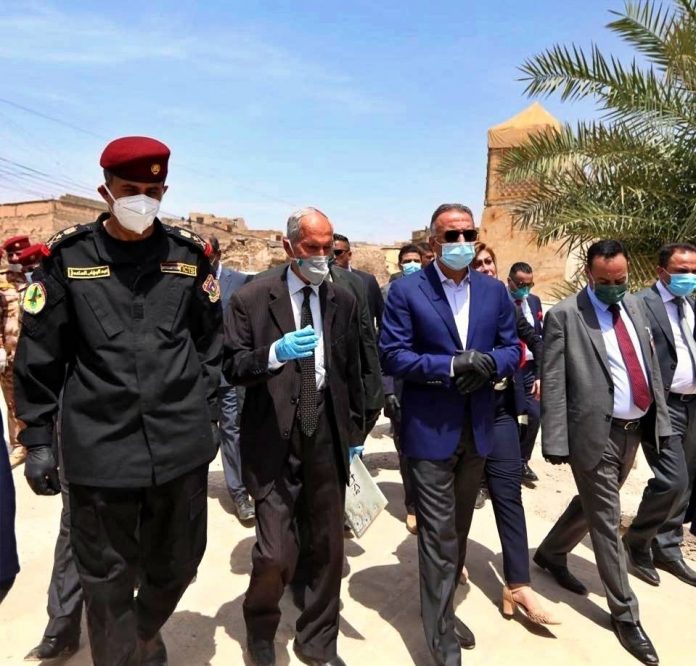
The Islamic State group will never again overrun Iraqi territory, Iraq’s prime minister vowed Wednesday in an official visit to northern Iraq.
The visit by Mustafa al-Kadhimi came amid a recent increase in militant attacks and the withdrawal of U.S.-led coalition forces in a planned drawdown.
In Baghdad, a rocket struck a few hundred meters (yards) from the U.S. Embassy inside the capital’s fortified Green Zone, according to a military statement, hours before the U.S. and Iraq are to hold highly anticipated talks focusing on the presence of American troops in Iraq. No casualties were reported.
One month into office, al-Kadhimi visited the gamut of lives touched by IS rule — from tribal leaders to the internally displaced — to mark the sixth anniversary of the group’s onslaught against Iraq. IS controlled a third of the country at the height of its power in 2014.
Al-Kadhimi was accompanied by the ministers of housing, migration and displacement, commerce and culture, as well as military officials.
“Our visit to Mosul is to send a message to IS: What happened will not be repeated,” he told reporters accompanying him.
Al-Kadhimi inspected the iconic al-Nuri Mosque, from where IS leader Abu Bakr al-Baghdadi first announced the IS caliphate. He was also present to re-open the city’s Al-Hurriya Bridge and a museum.
A military campaign dislodged IS’s territorial hold in Iraq by 2017, but reconstruction efforts have been slow and often upended by local political dynamics.
Al-Kadhimi was inaugurated as premier last month amid a severe economic crisis brought on by low oil prices. Recently, his administration has been dealing with a flare-up in coronavirus cases.
The streets of Mosul were empty and shops shuttered due to a curfew aimed at curbing the spread of the virus.
The World Bank recently offered to restructure loans earmarked for reconstruction to help the country combat the viral pandemic.
A study released Wednesday by the Harvard Humanitarian Initiative found that the two most pressing concerns of Mosul residents were employment and the need to improve security. IS is still capable of launching attacks across a band of territory across northern Iraq.
A recent increase in attacks coincided with the withdrawal of coalition forces in a planned drawdown to consolidate troop presence in Baghdad and Ain al-Asad airbase in Anbar province.
Al-Kadhimi also met with local officials and lambasted past corruption and mismanagement that led to the rise of IS.
“I will supervise construction contracts myself to prevent any corruption,” he said.
The rocket attack on the Green Zone was launched from nearby al-Shaab stadium east of the capital, the military statement said.
It was the second record attack this week. Late Monday, a rocket landed on the periphery of the Baghdad airport near a military base frequented by U.S. troops.
The perpetrators were not immediately known. The U.S. has blamed Iran-backed militias for similar attacks in the past.


















